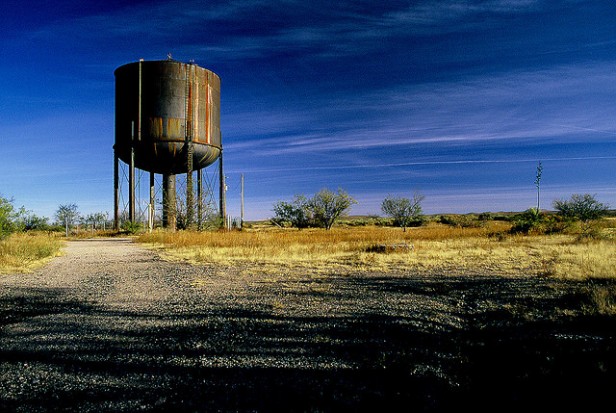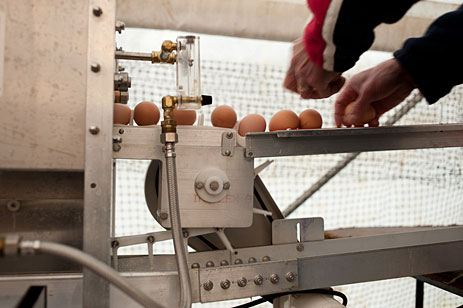For sale? An old water tower in Hachita, New Mexico.Photo: Ryan Thomas
The history of the West is peppered with water cowboys. Just recall William Mulholland, whose role in Los Angeles’ secret grab of water from Owens Valley, Calif., was made famous in the movie Chinatown, or Colorado’s contemporary water baron, Aaron Million, who’s pushing a $3 billion, privately funded scheme to funnel water to Colorado’s Front Range. Experience has shown that with water comes power.
The unique properties of water — the fact that it is a limited resource required for survival and that it has no substitute — have made it a bitterly fought-over asset in the arid West. Westerners who want to protect their limited water supply realize how important it is to keep this public resource out of the hands of the water cowboys.
But a threat different from diversion has come to town. As communities struggle to balance their ever-shrinking budgets, investment firms and large, predominantly foreign companies are seizing the moment. Across the country, communities are being aggressively courted to sell or lease their drinking water and w... Read more



